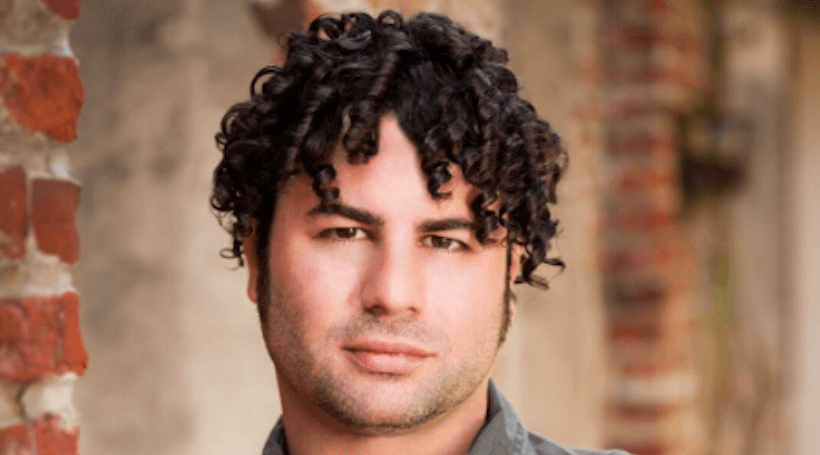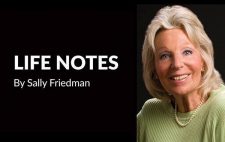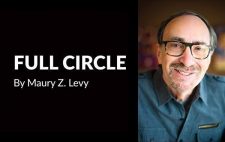Writer Dave Tomar makes no excuses for his former line of work: being paid to write term papers for college students. The Rutgers grad also has a lot to say about the education system and today’s students (not to mention their parents). By telling the story of his controversial career in his new book, “The Shadow Scholar,” Tomar sheds light on what he sees as an unfortunate and unpleasant reality. He has chosen this excerpt for SJ readers.
I had been writing papers full-time for about a year. At the time, I was dating Hope, a sweet girl whom I had no business being with. I was doing Thanksgiving dinner with her family this year.
Our relationship was frivolous, temporary, and occasionally miserable. We had been together long enough that her parents already didn’t like me. At first, all they really knew was that I was a writer and that I needed a haircut. That was bad enough. As they got to know me better, they just found me confusing.
Her father was a teacher in an affluent suburban elementary school. He was a Republican, an occasional hunter, a frequent fisher, and a man of strong faith. I was none of those things. He looked at me like I was a space alien.
As we pulled up to the house for dinner, I was finishing a paper on the Great Depression. My work, it seemed, always faintly echoed my life.
I folded my laptop into my backpack as Hope parked the car. Dad was standing on the porch with his hands on his hips, wearing a festive holiday scowl.
“Thanks for having me tonight, Mr. Klein.” I extended my hand. He shook it.
“That’s fine,” he said. I could see he was thrilled to have me.
“Hi, Daddy,” Hope said.
“Hi, baby. Happy Thanksgiving.”
The Klein family never wasted time with predinner chitchat. Nobody was ever there to prolong the event. Getting it over with was an annual family tradition. We sat down right away. Hope’s cousin Kevin got there late and found that we were all sitting at the table already, peering impatiently at the door.
They were the kind of family where you could hear forks clinking on plates, people sliding platters over, scooping with slotted spoons, and clearing their throats. Every once in a while, somebody would raise an eyebrow from their plate and look around at everybody else in quiet contempt for conspiring in this awkward showing of thanks. This kind of quiet always made me nervous that I might accidentally cut a fart. So I clenched my butt cheeks, looked down at my plate, and concentrated on my stuffing.
It took two bottles of wine for things to open up, for aunts and uncles to start complaining about their jobs, complimenting the food, and updating one another on friends who were now sick or dead. I kept mostly to myself and, as was often the case, planned out the next day of work in my head.
When the conversation finally fell on me, I longed for those precious minutes of awkward silence now passed.
Hope’s dad was a griller. He was a math teacher. He liked to call on you when your hand wasn’t raised, when your face was twisted with a perplexed expression, when he could tell you hadn’t been paying attention, when he was sure to catch you with your pants down and make you look like a huge asshole.
This guy. I’ve had lifelong friction with guys like him.
“So, I saw you working on that computer of yours. What’s that you’re working on right now?” he asked me with an unspoken air of “Something stupid, no doubt.”
“Well, I just finished an essay on the Great Depression.” “Oh, yeah?” “Yeah, very troubling stuff.” “How so?”
“Well, more than anything, just the thought that it could all come crashing down around us and that we’d be powerless to stop it.”
“Right . . . so you’re back in school, then? Good for you. That should help you find some direction.”
“Dad!” Hope said.
“No,” I said. “No. I’m not in school. And I’m not really looking for direction right now. I’m hoping to get by on charm.”
“What’s the depression got to do with it?”
“Well, I’m writing a study guide for a student to use when writing his paper about the depression.”
“And somebody is paying you to write about the depression?”
“Yes. Well, not just the depression. About lots of things. I write papers for students.”
“Meaning?”
“Well, I write these ‘study guides’ for students so that they can hand them in at school. I work for a company. I’m an independent contractor, and I get work through this company. They pay me at the end of each month.”
“So wait . . . ,” said Cousin Kevin, with a sly sort of grin that I’ve seen a lot during this type of conversation. “So people hire you to do their homework?”
“Mmhmm,” I replied through a mouthful of mashed potatoes. “So what do you write about, then?” “Anything, really. Almost anything. I don’t do, like, computer programming papers or hard math or anything like that. Though other people do that kind of work.”
“Other people?” Mr. Klein asked.
“Yeah. I work for a company. That’s how I find the work, or how the work finds me or whatever.”
“And you make a living doing this?” Kevin asked.
“Well, I don’t have prime rib for dinner every night, but y’know…I pay the bills… mostly.”
“Hah! That is awesome!”
Mr. Klein glared at him.
“What?!” said Kevin. “I wish I knew how to do that. Shit. I wish I’d known you when I was in school. That would have saved me some time.”
“Kevin!” his mother said.
“So you help people hand in work that they didn’t do? You help them cheat?” Mr. Klein asked, his voice rising in anger.
“Well, I don’t know what they do with my ‘study guides’ after I submit them. That’s on them, not me.”
“Don’t give me air quotes. Study guides, my ass. That’s just disgraceful.”
“Well, sir, please excuse me if I differ. I happen to think American schools are disgraceful.”
“Well, you’re just a cheater.”
“Not me. I don’t cheat. I genuinely do all the work.”
“Don’t be a smart-ass. You know what you’re doing. How do you get away with that?”
“Get away with it? This is wide out in the open. I pay taxes. I could give you the company’s website. You can read our disclaimers. We just sell study guides. I can’t be held responsible if a few bad apples are going to use our research for impure purposes.”
“You think it’s funny now. But one day your doctor will be some moron who cheated his way through school. So when he botches your operation, you’ll have yourself to thank.”
“With all due respect, sir, if some incompetent schmuck who doesn’t have the qualifications manages to coast his way through life and in spite of all his obvious deficiencies somehow gets to perform surgery on people because he got good grades, there’s something terribly wrong with your system, and it’s much bigger than cheating.”
It was getting heated, which got Hope pretty excited. She was having a great time with it.
“Hope,” Mr. Klein said, looking at his daughter like I had just left the room. “Where do you find these assholes?”
“Rick!” Mrs. Klein shouted.
“I should go.” I started to get up.
“Sit down,” he said calmly. “Everybody eat your turkey.”
“It’s really delicious, Mrs. Klein. So juicy.”
“Thank you, David.”
. . .
I was buried in work when Hope’s mother called me, not more than a week after Thanksgiving dinner.
This was strange. She had never called me. Not once. Panicked thoughts raced through my head. What had I done? Why could she be calling me? Oh god. Hope was pregnant, and her father was coming to kill me with his shotgun.
“Mrs. Klein? What’s wrong? Is everything OK?”
“David? Nothing’s wrong. Everything is fine. I just . . . I have a funny question for you.” She sounded uncomfortable. Nothing new there. She always sounded a little uncomfortable.
“Oh. OK?”
“Umm. Hmm. OK, are you still writing the papers? Do you still do that?”
“Uhhh, yeah. Of course.”
“OK. My friend’s daughter. . . I’m not sure how to put this. . . but her daughter is a little silly. And she likes to put things off until the last minute. Anyway, now she’s overwhelmed with exams and papers, and she’s just basically trying to get into colleges now, and that’s taking up a ton of her time. So I was telling. . .well, her mother heard about what you do and wanted to know if you could help. . .”
Heard about what I did? Right.
I’m sitting here thinking, You’re out there telling your friends about me, I’m sure in the nicest possible terms, and where the hell were you when your husband was ripping me a new one? That’s cool, though. It was all just business. Because I cut out the middle man when working directly with the customer, I could charge double my normal rate.
“Sure,” I told her. “I can help. Have her e-mail the assignment to me.”














